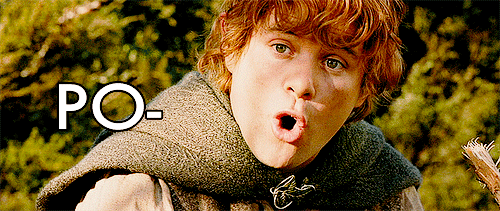Not only is it unclear where ideas come from, there seems to be no reliable way to make them come when we need them. If only there were a magic box under every writers bed that popped out the right idea whenever we needed it. If only there were elves that came out at night and finished that scene we've been stuck on. If only there were a tree that dropped idea apples every day at 5:47. Then we'd have an easy answer.
But, unfortunately, none of these things are actually available. The reality is much more of a slog. Whether we're trying to brainstorm an idea for a new novel, or we're stuck in the middle of our WIP and need an idea to get it moving forward, writers spend lots of time glaring at computer screens.
Now, there may not be a magic idea tree in every writer's backyard, but there may actually be a strategy or trick that's so helpful it may as well be magic. At least it has been incredibly helpful for me. This strategy can help at any stage of the brainstorming process--whether we're developing a character, designing our setting, or trying to figure out how to add more tension to a scene. This strategy--this secret weapon--is incongruity.
In other words, put something there that doesn't belong.
At least, something that doesn't seem to belong on the surface. Say you're working on a novel about two college roommates. One is a biology major, the other is going into physical therapy. Say you're in the middle of this novel, and you're stuck on a scene that seems to be falling completely flat. Then imagine the physical therapist finds a dozen Duke Ellington records under the biologists bed. That's something that doesn't appear to belong. That adds interest and intrigue.
Now, say you're developing your characters and setting. Add something to your character or setting that doesn't seem to belong. Here are some examples:
What is a piano doing in the middle of a possibly burnt forest? Aren't you intrigued by the back story of a man with a Mohawk and a Santa suit? These kinds of seeming incongruities are what catch and keep the readers attention. They are little mysteries your reader will keep reading to figure out.
There are entire stories based on and extrapolated from a single incongruity. A human in Santa's workshop? That's the movie Elf. What about a blond high-school beauty queen going to Harvard Law School? Legally Blonde. That one is particularly fun because you get to see a bunch of stereotypes get busted. And perhaps one of my favorites--a meter-high gardener helping to take down a Dark Lord and his entire kingdom? Hello Samwise Gamgee :)
So next time you're trying to brainstorm ideas for your next project, or you're trying to flesh out your next main character, or you're trying to figure your way out of a mucky middle bit, try this simple technique. Try simply adding something that doesn't seem to belong, and see where that takes you. You may discover something delightful. Like Will Ferrell in yellow tights.
Write on!
Sarah Allen
This Week on Social Media:
For more frequent updates, writing tips, and funnies, follow on Facebook, Twitter, Google+,
YouTube, Pinterest, Tumblr, GoodReads, and/or Instagram.
SUBMISSION OPPORTUNITIES:
- The First Line Magazine: All stories must be written with the first line provided. Due Nov. 1
- Writers Digest: Your Story 61: Write the opening sentence (just one, of 25 words or fewer) to a story based on a photo given. You can be funny, poignant, witty, etc.; it is, after all, your story. Due Oct. 13.
- BathHouse Magazine: The international hypermedia journal BathHouse is currently accepting submissions for its 12.1 issue with the underlying theme of "International". Due Nov. 17.
- Cactus Heart Magazine: Speculative themed issue. We want beautifully written fantasy, science fiction, steampunk, & reimagined fairy tales. Send your character-driven stories & poems full of magic, spaceships, & clockwork gadgets; send stories & poems that play on tropes, & make us reflect on our humanity along with gods, banshees, & cyborgs. Due Jan. 10.
- Drunken Odyssey Podcast: The Drunken Odyssey, an amazing writing podcast, needs personal essays for its “Book that Changed my Life” segments. Send pitches for essay ideas to thedrunkenodyssey@gmail.com. For approved pitches, essays should be between 500 and 800 words. Ongoing.
SPOTLIGHTS:
- How To Get it Right on Social Media (Author Culture)
- 10 Money-Making Tasks Successful Freelancer Writers Do Every Day (The Write Life)
- 10 Book Marketing Mistakes Self-Published Authors Make (BiblioCrunch)
- Squeezing Out the Stupid (Writer Unboxed)





















